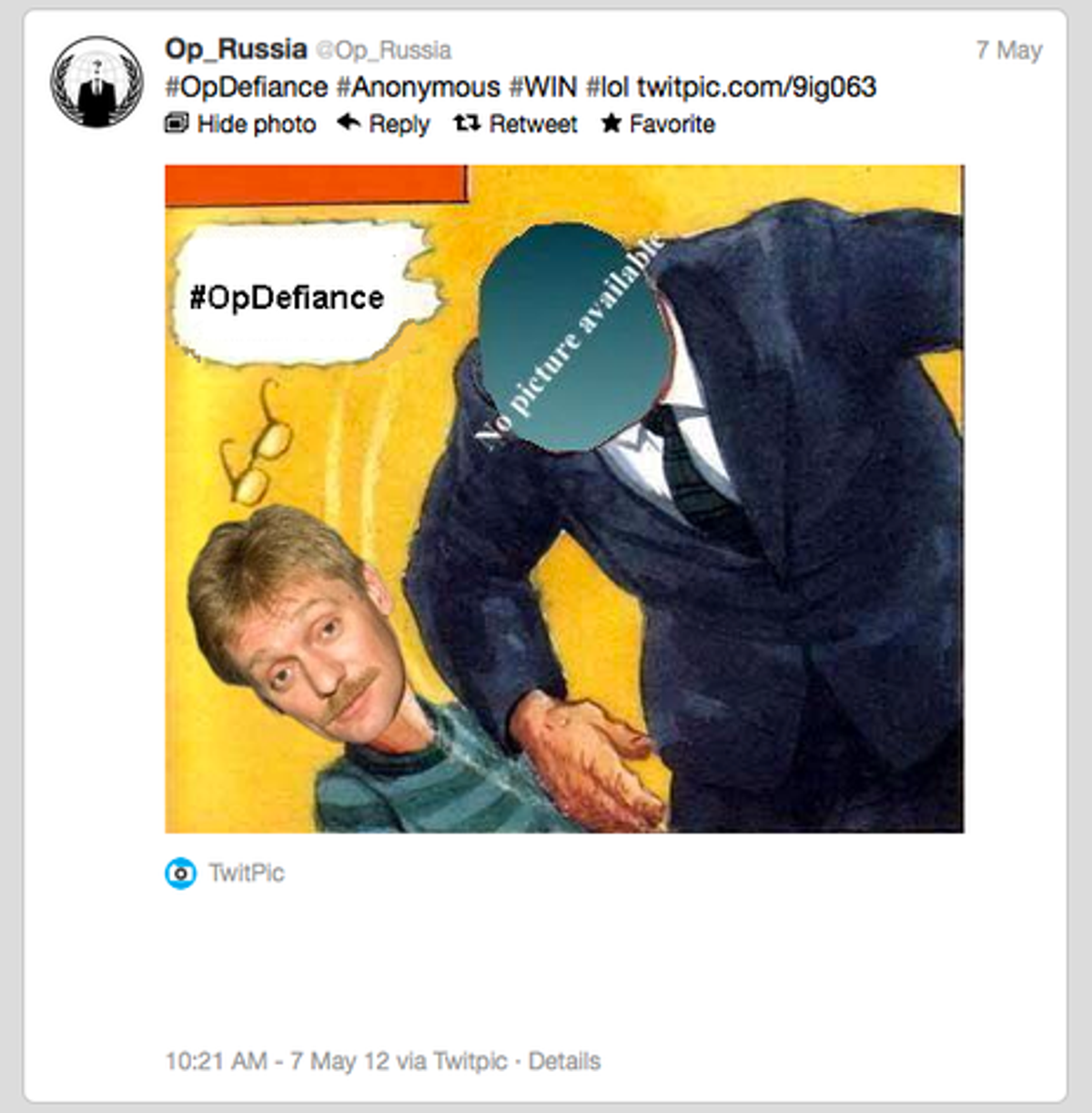Members of the hacktivist group Anonymous have been active this week, striking out at Virgin Media, Vladimir Putin, and, allegedly, a Twitter spammer.
The Wednesday attacks on Virgin Media and Vladimir Putin were denial-of-service hacks that temporarily brought down the sites. The motivations in these incidents were clearly stated.
According to a Reutersreport, Anonymous took credit for the Putin hack, a follow-through on a threat that the group would target Russian government websites in support of opposition protests, via the Twitter account @Op_Russia. Details of the kremlin.ru attack were less clear. Reuters said it went down for several minutes on Wednesday. But the RT network reported that the site was down for almost an hour, and that other government sites were also attacked, though not as successfully. Several Russian media sites also experienced denial-of-service hacks, but Anonymous members did not claimed responsibility for those, RT said.
The Virgin Media denial-of-service hack was retaliation over the takedown of The Pirate Bay, a massive file-sharing site, Daily Tech reports. “#Anonymous have just taken down #VirginMedia website again because of their involvement in the #Censorship of The Pirate Bay,” @AnonUK tweeted Wednesday. Virgin Media had decided to cooperate with the U.K. High Court’s order to block the site.
Earlier in the week, hackers claiming to be from Anonymous took credit for publishing a list of 55 000 Twitter handles and passwords on Pastebin. Many of the accounts listed were spam handles. Many, though, were duplicates, bringing the total closer to 35 000.
It appears that Twitter was not hacked—a spammer was hacked, and that list was released by another hacker. Or perhaps a spammer posted the list in retaliation against Twitter for cancelling some of the accounts on the list, suggests The New York Times. An eWeek columnist went so far as to speculate that the cache of passwords were a honeypot laid out by Twitter itself to catch hackers intent on nabbing Twitter's user files.
In a debate about the list on Y Combinator’s Hacker News, the consensus was that it was a white hat hack: an attempt to force Twitter to close a long list of fake accounts. When the handles and passwords went public, Twitter reset all of the passwords and sent out email notifications. That would kill a fake account, as the emails aren’t real.
But not all of the accounts posted in the Twitter list were fake. One Y Combinator user, felipe_csl, hacked into a real person’s Twitter account, then into that person’s Hotmail, and then emailed the owner to tell them their password had been posted online. Some users denounced felipe_csl's actions as illegal and invasive, while others called him conscientious.
This week’s hacktivist events may not be over. The BBC reports that tweets from Anonymous hackers have threatened a weekly repeat of Saturday's denial-of-service attack on United Kingdom’s Home Office website, in which the site was taken down for several hours.




